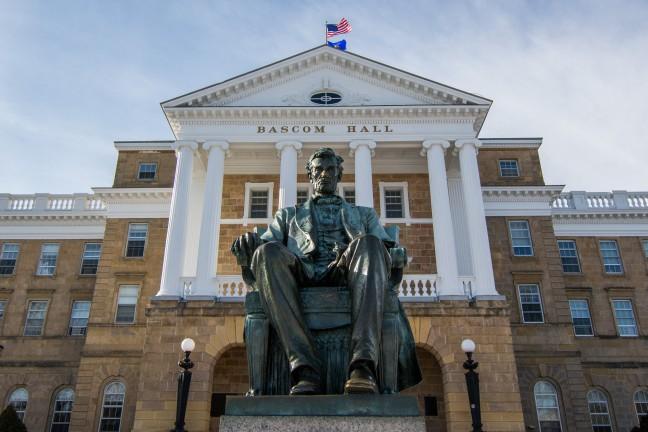University of Wisconsin administrators and students met Monday to hold a facilitated discussion on the Campus Climate survey released in November and to discuss what still needs to be done to make the university more inclusive.
UW Dean of Students Lori Berquam and UW Chief Diversity Officer Patrick Sims, summarized the report’s findings and presented a series of questions for students to discuss.
Kenneth Cole, a UW graduate, asked Berquam and Sims why a small portion of UW’s $3 billion endowments from donors can’t be set aside for organizations that provide services to underrepresented and marginalized groups.
“We’re looking for something substantial,” Cole said. “At the very least, everyone in this room — we’re not having this conversation to keep on having conversations.”
Sims said the only money administrators can use of the $3 billion endowment is what is earned from it as income. The rest, Sims said, often comes with specific restrictions and guidelines for what the money can and can’t be used for.
At a time when the state government is cutting funding for UW, Sims said it is increasingly difficult for administrators to secure funds for marginalized groups. As an example, Sims said it has taken his team at the Division of Diversity, Equity and Educational Achievement two years to carve out enough resources to hire one person to operate the division’s social media.
“The progress that we’re making is slow and incremental — but the things that are kind of obvious [to fund], there’s a certain amount of bureaucracy that you kind of have to wade your way through,” Sims said.
Both Sims and Berquam said the push for how the university should allocate funds should come from students as much as it comes from sympathetic administrators.
As an employee of the university, Sims said he is not as effective as students are at continually pressuring senior leadership, like the chancellor or the university’s chief financial officer, into meeting their demands. Instead, Sims uses pressure from students to keep conversations and solutions for marginalized groups on the tables of his higher-ups.
“Students have been one of the strongest advocates for pushing change,” Berquam said.


